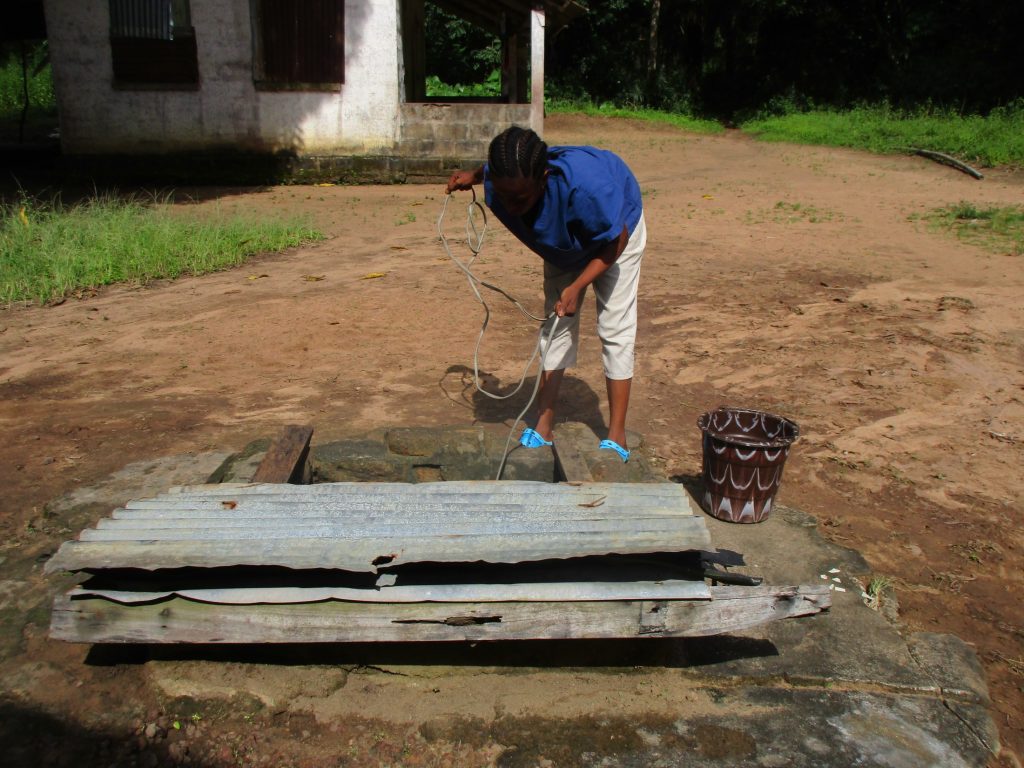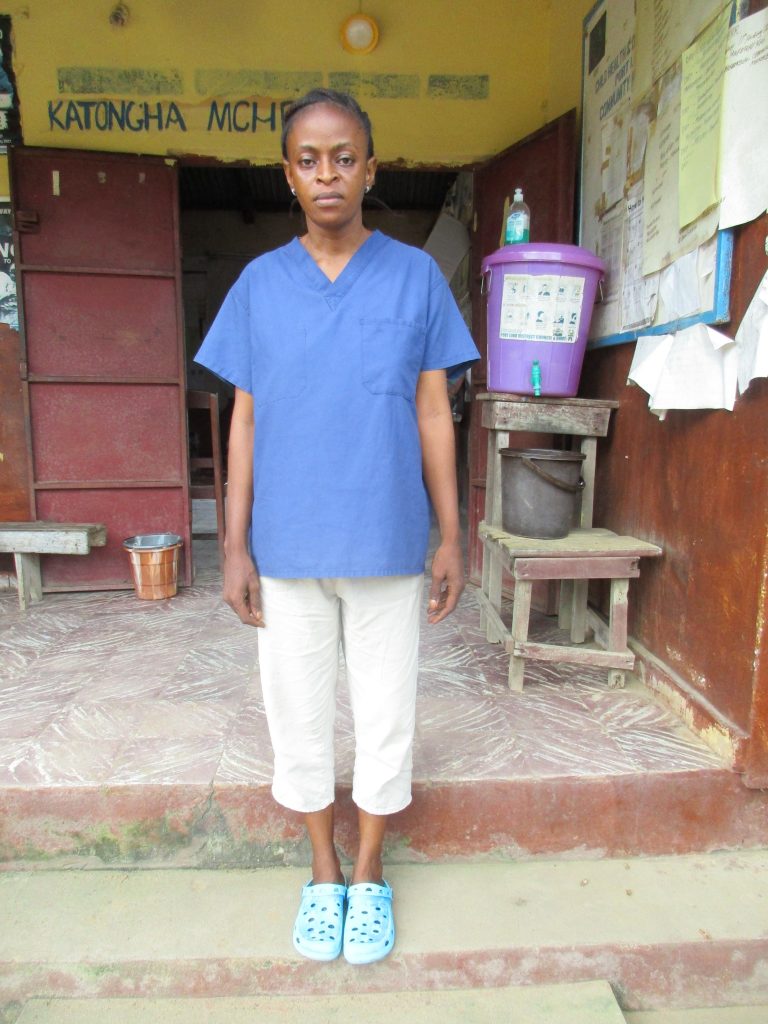Water is a Lifeline: Empowering Health Workers in Sub-Saharan Africa
World Health Worker Week, which is happening now, calls for policies and practices to help essential healthcare workers feel “safe and supported.” Where The Water Project works in sub-Saharan Africa, health workers struggle for safe water right alongside (and on behalf of) their patients.
In facilities with piped water, health workers may forget how important water is to healthcare. But workers in sub-Saharan Africa, who manually collect each container full of water from off-premises, know exactly all the ways water is essential for their patients’ recovery.
Clean water is fundamental for maintaining hygiene and preventing the spread of infections. Handwashing, cleaning medical equipment, and sanitizing surfaces are basic yet vital practices that rely on water. In regions like sub-Saharan Africa, where water scarcity is a significant challenge, the inability to perform these tasks can lead to increased infection rates among patients and health workers.
Water also helps health workers administer medications and manage conditions where hydration is a part of treatment. Additionally, certain medical procedures, such as childbirth and surgery, require substantial amounts of clean water to ensure both the patient’s and the newborn’s safety through cleanliness and infection prevention.
Today, we highlight the words of five women on the front lines of health work in sub-Saharan Africa to raise awareness of their daily struggles.
In Their Own Words
Joice Auma, a clinic staff member at Ochwore Dispensary in Kenya, captured the essence of her dispensary’s struggle for water vividly.
“Our patients find it so hard to clean their hands,” Joice said. “Moreso, for those who vomit, [we] cannot clean the surface immediately due to [the] lack of enough water.”
Water access directly affects both patient care quality and health worker efficiency.
“Sometimes, I have many patients at the health center and they need water to drink and also to clean their items,” said 38-year-old Priscah Naliaka from Shihome Dispensary in Kenya. “When I go to the spring, I find many people queuing for water, and it takes me [a] long time to go back to [the] health center to attend to other patients.”
Without enough water, health workers can’t prepare for the inevitable surprises that come from caring for others.
“A healthcare facility needs [an] adequate supply of clean water at all times, because you cannot predict what services will be needed by patients who come,” said 54-year-old nurse Bernadina Imbatswa from Kimwenge Dispensary in Kenya.
Bernadina continued with a story: “Like one time, a pregnant woman who was in labor came [to] our dispensary, and on checking her, she was at [the] second stage of labor. It was a case of emergency!
“We had to deliver the baby because if we referred her to another facility that provided maternity services, it would have been a risk to the baby and the mother. Unfortunately for us, there was little water left, yet this exercise required [a] good amount of water for handling [the] delivery of the baby and cleaning up after the baby is born.
“One of the workers had to rush to one of the neighboring homesteads to request for water to save the situation. Luckily, the baby was delivered successfully, and we had water to clean up afterwards. My prayer is that we get a reliable water [source] so that we can expand and improve services offered to the many patients who come to seek medical services.”
When a healthcare center lacks water, it often turns capable nurses into water-fetchers ferrying heavy containers back from faraway sources to keep up with their facility’s needs. This is a tragic loss of potential and time, and a serious health risk for the vulnerable patients these health workers seek to help.
“Running a health facility without water [is] difficult,” said 34-year-old nurse Isatu Bangura from Katongha Maternal Child Health Post in Sierra Leone. “Water is needed to cook, launder, drink, and use the toilet. [Patients] use a lot of water to take their drugs, wash their hands, and use the latrines.”


Isatu continued: “The underlying cause for the suffering for water is the frequent pump breakdown of our main water source. During such [a] situation, even fetching drinking water would be difficult. I spend most of my time fetching water from our alternate source. It’s time-consuming to fetch and transport water to the clinic. This makes me have divided attention since I would be fetching water and, at the same time, trying to attend to patients.
“I will be very happy if our main water source becomes functional again,” concluded Isatu.
In some sad cases, the lack of clean water turns even nurses into patients themselves.
“I have been a victim of consuming contaminated water. I have been diagnosed with typhoid, not once but twice, forcing me [to] seek medical attention,” said 46-year-old community health worker Doreen Oyiko from Emuhaya Subcounty Hospital.
Health workers like Joice, Priscah, Bernadina, Isatu, and Doreen face the daunting challenge of providing care without reliable access to clean water. Their resilience is admirable, but they shouldn’t have to fight this battle alone.
Water is essential to health and safety in healthcare settings in sub-Saharan Africa. It supports the basic operations of healthcare facilities, enables health workers to provide safe and effective care, and is fundamental to the prevention and control of infections and diseases.
Today, The Water Project stands with health workers in sub-Saharan Africa as they carry out their duties despite being underequipped without water.
Ensuring that healthcare facilities have a reliable water supply alleviates this burden on health workers. You can help us ensure that critical water keeps flowing at the healthcare facilities we serve by supporting The Water Promise, The Water Project’s sustainability program. Thanks to our donors, we monitor and maintain the water sources at health facilities throughout Kenya, Sierra Leone, and Uganda, allowing health workers to provide improved care to their patients.
Home More Like ThisTweet